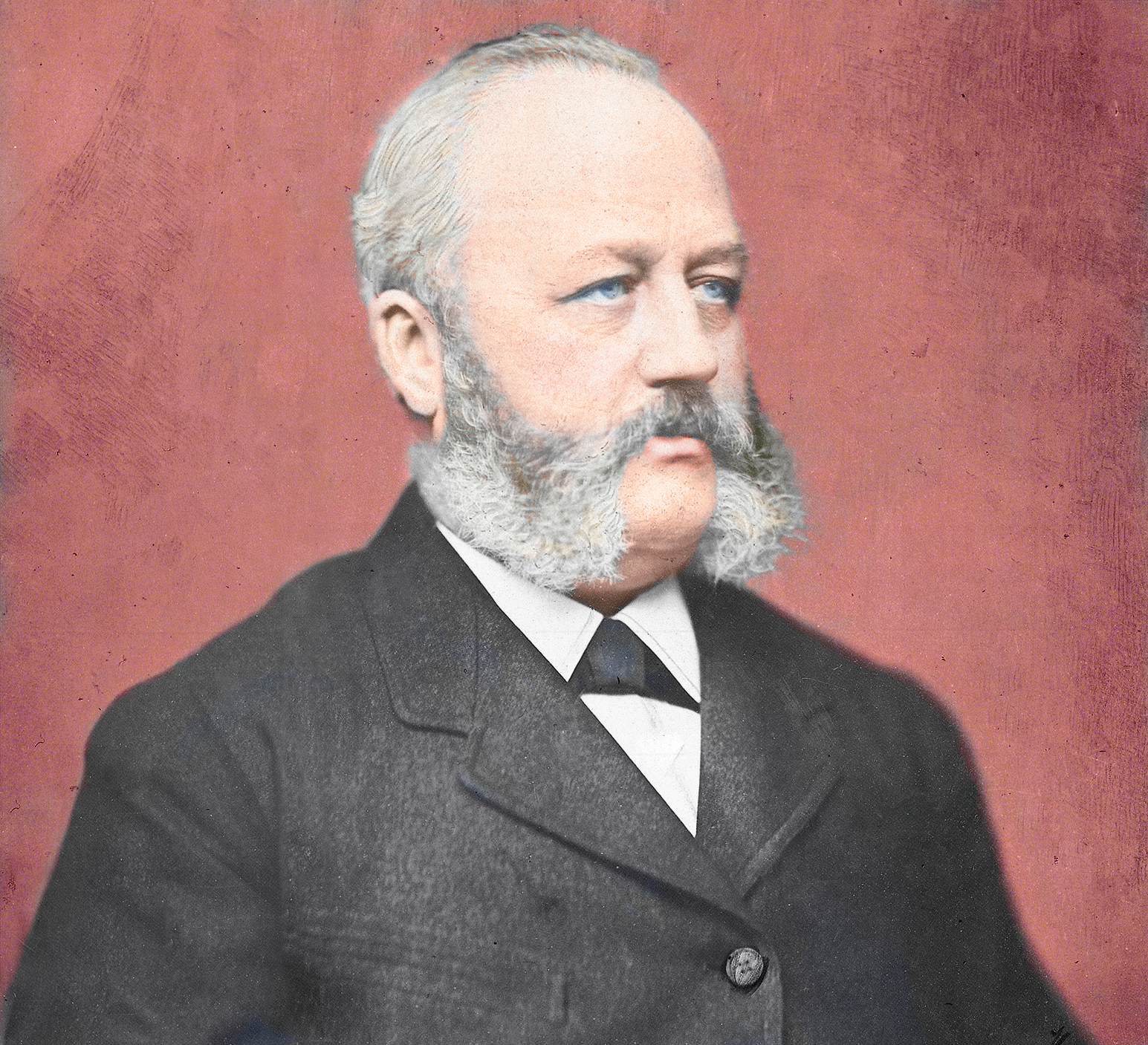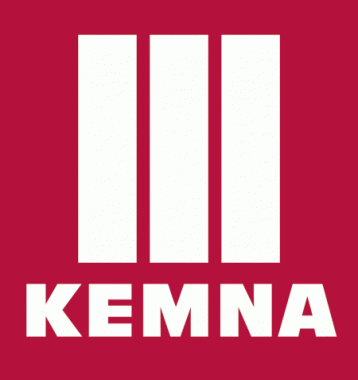|
Julius Kemna
Julius Kemna (December 8, 1837 in Barmen – June 8, 1898 in Breslau) was a German machine manufacturer and industrialist. He was the founder of Kemna Bau. Biography Early life Julius Kemna was born the only son of Johann Abraham Kemna and Carolina Wilhelmina (Wilhelmine) van Hees on December 8, 1837 in Barmen. The family of Johann Abraham Kemna, a wine wholesaler from Barmen and Royal Prussian purveyor to the court (1810–1878), can be traced back to the 15th century, where they lived in the Kemna manor. Kemna's mother, Carolina Wilhelmina van Hees (1814-1880), was the niece of the well known Barmer school founder Susanna Sophia Antoinetta van Hees and granddaughter of the first pharmacist in Barmen Johann Hermann von Hees. Kemna associated with people of highest social standing from childhood and was therefore able to establish beneficial contacts for himself and his future company accordingly. It is also probable that Kemna felt encouraged to step out of the shad ... [...More Info...] [...Related Items...] OR: [Wikipedia] [Google] [Baidu] |
Barmen
Barmen is a former industrial metropolis of the region of Bergisches Land, Germany, which merged with four other towns in 1929 to form the city of Wuppertal. Barmen, together with the neighbouring town of Elberfeld founded the first electric suspended monorail tramway system, the Schwebebahn ''floating tram''. History Barmen was a pioneering centre for both the early industrial revolution on the European mainland, and for the socialist movement and its theory. It was the location of one of the first concentration camps in Nazi Germany, KZ Wuppertal-Barmen, later better known as Kemna concentration camp. Oberbarmen (Upper Barmen) is the eastern part of Barmen, and Unterbarmen (Lower Barmen) the western part. One of its claims to fame is the fact that Friedrich Engels, co-author of ''The Communist Manifesto'', was born in Barmen. Another of its claims is the fact that Bayer AG was founded there by Friedrich Bayer and master dyer Johann Friedrich Weskott with the express pur ... [...More Info...] [...Related Items...] OR: [Wikipedia] [Google] [Baidu] |
Kemna Bau
KEMNA BAU Andreae GmbH & Co. KG is one of the largest German construction companies and the largest street infrastructure provider in Germany with its headquarters inside the country. The company was originally founded under the name of J.Kemna/Breslau and was a Steam engine, steam tractor, locomotive, steam plow, road roller and tractor factory in Wroclaw, part of Germany until 1945. It was one of Germany's largest producers in this industry and the largest steam-plow producer in Europe during the early 21st century. History J. Kemna - Breslau The company founder Julius Kemna originally came from Barmen, where he was born in 1837. In 1867 he started his business in Breslau, which initially produced agricultural machinery. He worked with Fowler at times, but soon decided to build his own locomotives and steam plows. Following the example of Fowler, Kemna also built single-cylinder saturated steam engines, but soon recognized the advantages of high-pressure steam technology ... [...More Info...] [...Related Items...] OR: [Wikipedia] [Google] [Baidu] |
Eduard Lübbert
Friedrich Wilhelm Eduard Lübbert (10 June 1830, Zweybrodt near Breslau – 31 July 1889, Bonn) was a German classical philologist known for his studies of Latin grammar and syntax as well as for his numerous published works involving the Greek lyric poet Pindar. He studied at the Universities of Breslau, Berlin and Bonn, obtaining his habilitation in 1859 at Breslau. In 1865 he became an associate professor at the University of Giessen, where in 1871, he attained a full professorship. Later on, he served as a professor at the Universities of Kiel (from 1874) and Bonn (from 1881). Selected published works * "De elocutione Pindari", 1853 (dissertation thesis). * "Commentationes pontificales", 1859 (habilitation thesis). * ''Beiträge zur Tempus- und Moduslehre des älteren Lateins'', (Contributions to the tense and mode of teaching older Latin); 2 parts, Breslau 1867–1870 (Grammatical studies 1–2). ** Part 1: ''Der Conjunctiv Perfecti und das Futurum exactum im älteren L ... [...More Info...] [...Related Items...] OR: [Wikipedia] [Google] [Baidu] |
19th-century German Businesspeople
The 19th (nineteenth) century began on 1 January 1801 ( MDCCCI), and ended on 31 December 1900 ( MCM). The 19th century was the ninth century of the 2nd millennium. The 19th century was characterized by vast social upheaval. Slavery was abolished in much of Europe and the Americas. The First Industrial Revolution, though it began in the late 18th century, expanding beyond its British homeland for the first time during this century, particularly remaking the economies and societies of the Low Countries, the Rhineland, Northern Italy, and the Northeastern United States. A few decades later, the Second Industrial Revolution led to ever more massive urbanization and much higher levels of productivity, profit, and prosperity, a pattern that continued into the 20th century. The Islamic gunpowder empires fell into decline and European imperialism brought much of South Asia, Southeast Asia, and almost all of Africa under colonial rule. It was also marked by the collapse of the large ... [...More Info...] [...Related Items...] OR: [Wikipedia] [Google] [Baidu] |
German Industrialists
German(s) may refer to: * Germany (of or related to) ** Germania (historical use) * Germans, citizens of Germany, people of German ancestry, or native speakers of the German language ** For citizens of Germany, see also German nationality law **Germanic peoples (Roman times) * German language **any of the Germanic languages * German cuisine, traditional foods of Germany People * German (given name) * German (surname) * Germán, a Spanish name Places * German (parish), Isle of Man * German, Albania, or Gërmej * German, Bulgaria * German, Iran * German, North Macedonia * German, New York, U.S. * Agios Germanos, Greece Other uses * German (mythology), a South Slavic mythological being * Germans (band), a Canadian rock band * "German" (song), a 2019 song by No Money Enterprise * ''The German'', a 2008 short film * "The Germans", an episode of ''Fawlty Towers'' * ''The German'', a nickname for Congolese rebel André Kisase Ngandu See also * Germanic (other) * ... [...More Info...] [...Related Items...] OR: [Wikipedia] [Google] [Baidu] |

.jpg)

